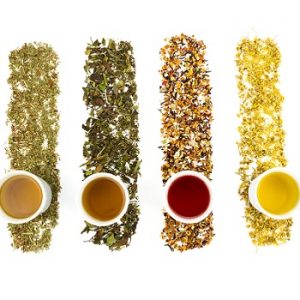
More evidence that low-calorie sweeteners are bad for your health
Studies show that artificial sweeteners can raise the risk of hypertension, metabolic syndrome, type 2 diabetes and heart disease, including stroke.

After water, tea is the most commonly consumed beverage worldwide.
All types of tea (Camellia sinensis) – black, green, white or oolong – are rich in antioxidant polyphenols and studies have shown these have a potential role in the prevention of cancer, heart disease, neurodegenerative disease and other chronic conditions.
This had led to a whole new market in ‘healthy’ tea drinks that we can drink cold and on the go. But do these cold teas really have the same benefits as hot tea made in the traditional way?
Certainly some experts advise that convenience teas, that is bottled tea, tea brewed overnight in the fridge, made from powders, liquid concentrates, or even newer cold-brew tea bags, may not pack the antioxidant punch of hot traditionally brewed tea.
It’s not an area that has been widely studied until recently when a large study in the European Journal of Nutrition waded in to the hot versus cold tea debate.
Testing the tea
The Penn State researchers used a large group of 6,472 adults to look at the link between tea consumption – green, black and oolong tea, both hot and iced — and multiple symptoms of metabolic syndrome. The symptoms they looked at included body mass index (BMI), waist circumference, fasting glucose, cholesterol (total, HDL, LDL and triglycerides), and C-reactive protein. Researchers also collected fasting and non-fasting blood samples.
The participants were divided into one of four categories of consumption of both hot and iced green, black, and oolong teas, based on their answers in food questionnaires:
Next, researchers looked at their weight. The participants were classified as lean (BMI of 24.9 or lower), overweight (BMI of 25.0-29.9 2), or obese (BMI greater than 30) and and their body fat was evaluated using waist circumference, as well as tricep and subscapular skinfold thickness.
Hot tea lead to lower weight
It was a complex study looking at a lot of comparative data, but overall the results showed that regular consumption of hot tea was associated with decreased weight whereas regular consumption of iced tea was not.
Specifically, women in the highest category of hot tea consumption had the lowest BMI (26.2 versus 28.5 for non-consumers). A similar relationship was found in men (25.4 versus 27.9 for non-consumers). Both men and women who drank multiple cups of hot tea a day also had a smaller waist circumference, though this effect was more pronounced among the men.
Drinking iced tea, on the other hand, had the opposite effect. Women saw a significant increase in waist circumference, skinfold thickness and BMI. Among men, non-consumers had significantly lower BMI and waist circumference than men who drank multiple daily cups of iced tea. Also, subscapular skinfold thickness was higher in both men and women who drank iced tea.
Other health benefits
In addition to these findings the researchers also found that:
“These findings” concluded the researchers “demonstrate that the health benefits of tea consumption may occur only when tea is consumed in a traditional manner, and that iced tea may provide no health benefit to consumers. These results support the potential of tea as a modulator of body weight and indicate the need for further controlled, intervention studies to compare the effects of black, oolong, and green tea on body weight and body fat”.
So what is it about hot tea?
Earlier speculation has been that adults who consume a lot of tea have a higher caffeine intake, and that the boost to metabolism from this could translate into weight loss.
However, in this study there were no significant differences in caffeine intake (or macronutrient intake) between any of the different types of hot or cold tea consumed. What’s more women (but not men) consuming large amounts of tea also consumed more daily calories, often in the form of sugar in their tea and iced tea drinks.
The researchers suggest instead that the benefits they saw were because hot tea has a higher antioxidant content, and often contains lower amounts of sugar than iced or bottled teas as well.
It could also be that iced tea drinks tend to have less actual tea and more ‘other’ ingredients, such as flavourings which have no nutritional value, in them.
The weight loss results they saw could also simply be due to the fact that tea contains high amounts of antioxidant polyphenols, which help reduce inflammation and can help boost weight loss.
Because of the limited data we don’t know if making your own iced tea and drinking it more or less immediately would be a healthier option than ‘convenience’ tea. In the mean time, if you want to get the most health benefits from your tea, it seems that several cups of freshly brewed hot tea per day (minus the sugar) per day may be the healthiest option.

Please subscribe me to your newsletter mailing list. I have read the
privacy statement